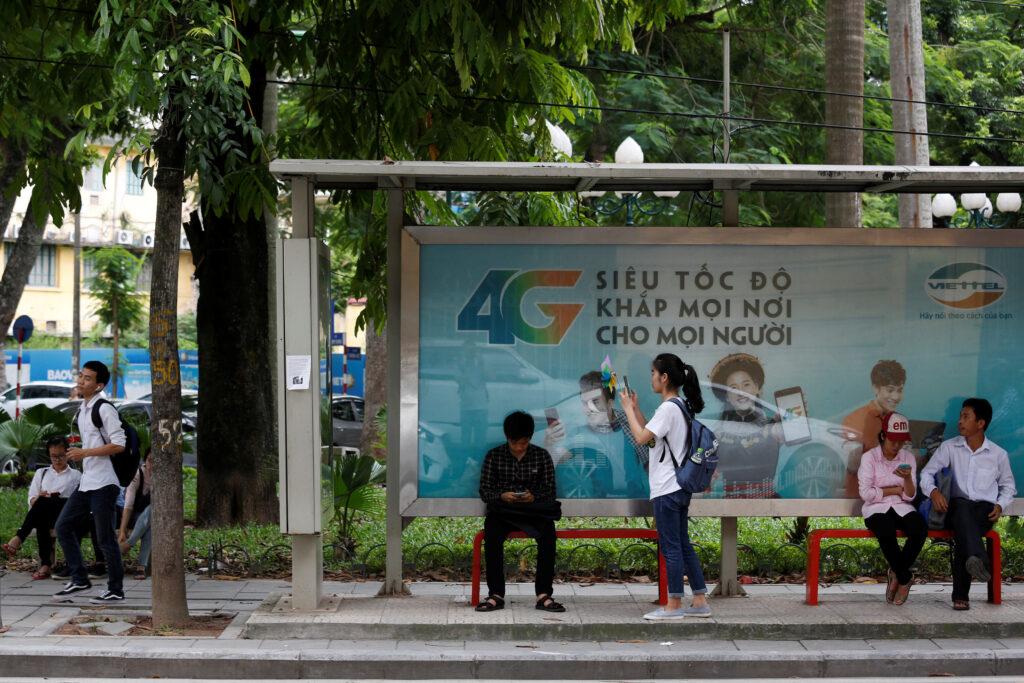Though actively partaking in international integrity operations and having the world’s 12th largest population of internet users, Vietnam has become increasingly vulnerable to cyber-attacks.
Cybersecurity concerns emerged in 2011 after Chinese vessels wrecked the cable system of a Vietnamese hydrographic research vessel. This incident was followed by cyber warfare between Chinese and Vietnamese hackers, where the database of a Vietnamese news agency was deleted and the Chinese national flag displayed on one Vietnamese government website.
In 2012, Chinese hackers attacked Vietnamese agencies including PetroVietnam, Vietnam News Agency and Vietnam Post. During the 2014 oil rig standoff, 220 Vietnamese websites, including six government websites, were attacked by hackers believed to have been from China.
In July 2016, a Chinese hacker group known as ‘1973cn’ hacked the operating systems of Tan Son Nhat Airport, Noi Bai Airport and Vietnam Airlines, propagating China’s claims to the South China Sea nine-dash line. Vietnam Airlines stated that on the same day, 1973cn also stole and publicised private customer information. In 2018 and 2019, the information systems of Vietnamese border offices were attacked by Chinese hacker group ‘Mustang Panda’.
In the first half of 2023, more than six thousand cyber-attacks were reported in Vietnam and the number more than doubled by the end of the year to 13,900 incidents. Vietnam National Cyber Security Technology Company estimated a 9.5 per cent increase in cyber-attacks in 2023 compared to 2022.
Among the 554 websites attacked in 2023, 212 web addresses came from Vietnamese government offices, exacerbating concerns over large-scale attacks on classified national databases.
Cyber security has become complex to tackle, as it can generate multifaceted adverse impacts ranging from social unrest to risking Vietnam’s fragile governmental apparatus. This complexity necessitates concerted efforts from Hanoi to protect national security.
The Vietnamese government has raised mounting worries about cybersecurity, considering cyber threats as a new challenge to national sovereignty, national security and domestic stability.
In the May 2018 Directive on Enhancing the Capability to Defend and Counter Against Malicious Software, then-prime minister Nguyen Xuan Phuc expressed concern about the alarming rate of malicious code transmission into Vietnam, seriously affecting government websites.
Vietnam’s 2019 National Defense White Defence Paper indicates the country’s vulnerability to cyber warfare from hostile forces that exploit technological advances to attack critical cyber and information infrastructure, disseminate national secrets and spread disinformation. These dangerous acts ‘have seriously threatened national sovereignty in cyberspace, intensely affecting the political stability, socio-economic development, national defence and security of Vietnam’.
In a high-level online discussion organised by the UN Security Council in June 2021, Vietnamese Foreign Affairs Minister Bui Thanh Son addressed the impacts of technological development in facilitating terrorists and transnational criminals to illegally enter critical systems, damage critical infrastructure, provoke social instability and spread disinformation. These acts threaten national sovereignty, security and development while eroding mutual trust between states.
At the second meeting of Vietnam’s Steering Committee of Cyber Safety and Cybersecurity in August 2023, Prime Minister Pham Minh Chinh claimed that cyberspace has become a strategic domain, making cybersecurity a pivotal, constant and long-time priority.
From policy to practice, Vietnam has taken urgent measures to address rising cyber threats. The Cyberspace Operations Command and Force 47 were established in the Ministry of National Defence in 2017. The Department of Cyber Security was founded in the Ministry of Public Security in 2018 to protect Vietnamese cyberspace from foreign hackers.
The Vietnamese government has also enhanced public awareness of cybersecurity and proposed greater protection of cyber and information systems through the 2015 Law on Securing Cyber Information and the 2018 Law on Cybersecurity.
In November 2018, the Vietnamese National Assembly released the State Secret Protection Law, establishing a legal framework against acts of sharing, stealing and publicising national secrets and cyber-attacks from foreign spies. The Vietnam Cybersecurity Emergency Response Teams/Coordination Centre was established in 2019 to coordinate responses to cyber-attacks and verify information security at the national level.
In 2022, Prime Minister Pham Minh Chinh ratified the National Cybersecurity Strategy with objectives for 2025 and a vision for 2030. A main aim of the strategy is to maintain Vietnam’s ranking in the global security index between 25th and 30th place. It also aims to develop national coding infrastructure to protect national secrets and important intelligence. A four-layer protection model is being encouraged for critical information infrastructure and ‘Made in Vietnam’ technologies are being prioritised to protect national systems.
Due to concerns about cyber-attacks by Chinese hackers, Vietnam has reduced Huawei’s investment in 5G networks and is developing its own 5G infrastructure using Viettel’s chips and devices. Hanoi’s decision to opt out of engaging with Huawei, once a critical partner promising high opportunities for technological advancement, underscores Vietnam’s commitment to mitigating the risk of cyber-attacks.
Since becoming aware of the impact of cyber threats on national security, Vietnam has gone to great lengths to defend the nation in cyberspace, resulting in significant successes. Despite these achievements, there is no room to be complacent. To stay ahead of the hackers, Hanoi must continue to implement smart policies and proactively address and prevent cyber-attacks.
Viet Dung Trinh is a PhD candidate at the University of Queensland.


Despite having the 12th largest internet user population globally, Vietnam's cybersecurity vulnerability has increased due to regular cyber-attacks, often attributed to Chinese hackers, causing concerns for national sovereignty, security and domestic stability. In response, the Vietnamese government has launched various cybersecurity strategies and campaigns, established agencies for cybercrime prevention, declined Huawei's offer for 5G infrastructure development and laid out objectives to improve the national security index by 2025.